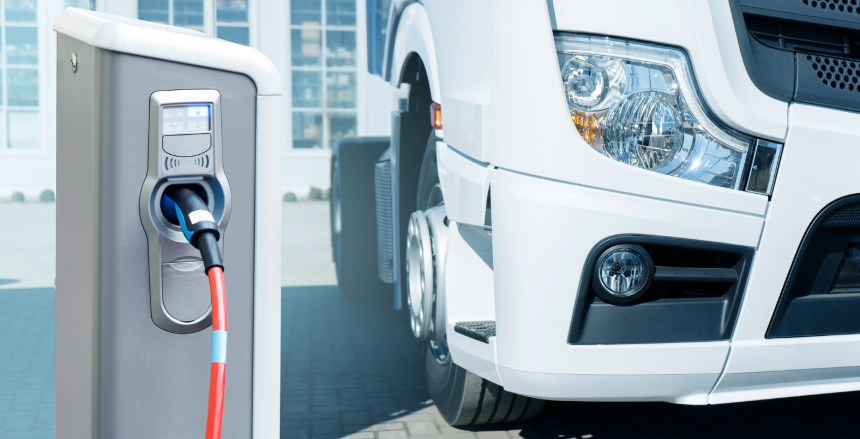31
December
Exploring Different Types of Electric Vehicles
Electric Vehicles have come a long way & are becoming more popular. With the advancement of the latest technology, there are different types of EVs on the market, so it might be hard to know which is best for you.
In this blog, let's explore the types of electric vehicles available, from Battery Electric Vehicles (BEVs) to Hybrid Electric Vehicles (HEVs), Fuel Cell Electric Vehicles (FCEVs), Plug-in Hybrid Electric Vehicles (PHEVs).
Types of Electric Vehicles
Battery Electric Vehicles (BEVs)
Batter Electric Vehicles (BEVs) are one of the most common types of electric vehicles available in the market. These vehicles rely solely on a rechargeable battery pack as their source of power and do not have an internal combustion engine.
One of the significant advantages of Batter Electric Vehicle is their range. With advancements in battery technology, the range of BEVs has significantly improved over the years, allowing them to compete with traditional gasoline-powered vehicles. Depending on the model, BEVs can offer ranges that vary from around 100 to over 300 miles on a single charge. This range is more than sufficient for mostly daily commutes and even longer hauls with the availability of charging infrastructure.
While BEVs have numerous advantages, it’s essential to consider their limitations as well. The primary constraint is the need for charging infrastructure. Although the charging network is expanding, it may still be less accessible in certain areas. Additionally, the time required to charge a BEV compared to refueling a gasoline-powered vehicle can be a deterrent for some potential buyers. However, with proper planning and the increasing availability of charging stations, these limitations can be overcome.
Plug-in Hybrid Electric Vehicles (PHEVs)
Plug-in Hybrid Electric Vehicles (PHEVs) offer a unique combination of electric and gasoline-powered propulsion. These vehicles feature an electric motor and an internal combustion engine, providing the flexibility to run on electricity alone or switch to gasoline when needed. PHEVs offer the best of both worlds, combining the benefits of electric and conventional vehicles.
One of the key advantages of PHEVs is their extended range. While BEVs rely solely on battery power, PHEVs have the added advantage of a gasoline engine, which can be used as a backup power source. This allows PHEVs to have a longer range compared to BEVs, making them sustainable for longer haul without the need for frequent charging, PHEV’s typically offer an electric range of around 20 to 50 miles before the gasoline engine kicks in.
Another benefit of PHEVs is their flexibility. PHEVs can be charged from an external power source like a public charging station, allowing you to take advantage of electric power for shorter commutes or trips. When the electric range is exhausted, the vehicle seamlessly transitions to the internal combustion engine, eliminating range anxiety and providing peace of mind for longer drives.
PHEVs also offer improved fuel efficiency compared to conventional gasoline-powered vehicles. The utilization of electric power for shorter trips allows for a significant reduction in fuel consumption and emissions by PHEVs, making them an attractive option for those who frequently commute short distances or have a longer haul. However, PHEVs come with certain limitations. The electric range of PHEVs is generally inferior to that of BEVs, resulting in increased dependence on the internal combustion engine for longer journeys. Furthermore, PHEVs may incur a higher initial cost compared to conventional gasoline-powered vehicles, attributed to the added complexity of the hybrid system.
Nonetheless, the benefits of reduced emissions, improved fuel efficiency, and the flexibility of electric and gasoline power make PHEVs an attractive option for many.
Hybrid Electric Vehicles (HEVs)
Hybrid Electric Vehicles (EVs) are another type of electric vehicle that combines an internal combustion engine with an electric motor. Unlike PHEVs, HEVs cannot be charged externally and rely on the internal combustion engine and regenerative braking to recharge the battery while driving. HEVs are designed to optimize fuel efficiency and reduce emissions by leveraging the benefits of electric power.
One of the primary advantages of HEVs is their improved fuel efficiency. The electric vehicle in an HEV assists the internal combustion engine, reducing the reliance on gasoline and improving overall fuel economy. This results in lower fuel costs and reduced emissions, making HEVs a greener alternative to conventional gasoline-powered vehicles.
In terms of range, HEVs typically have a shorter electric range compared to PHEVs and BEVs. However, the fuel efficiency gains from the electric vehicle contribute to an extended overall range compared to conventional gasoline-powered vehicles.
Fuel Cell Electric Vehicles (FCEVs)
Fuel Cell Electric Vehicles (FCEVs) are a unique type of electric vehicle that uses hydrogen fuel cells to generate electricity, powering an electric motor. FCEVs offer the advantages of electric vehicles, such as zero tailpipe emissions and energy efficiency, with the added benefit of quick refueling times.
One of the key advantages of FCEVs is their fast refuelling time. Unlike battery electric vehicles that require hours to recharge, FCEVs can be refueled with hydrogen in a matter of minutes, similar to refuelling a conventional gasoline-powered vehicle.
In terms of performance, FCEVs offer a smooth and quiet driving experience like other electric vehicles. The electric motor in FCEVs delivers instant torque, providing quick acceleration and a responsive driving experience.
However, there are some challenges associated with FCEVs. The availability of hydrogen refuelling stations is currently limited compared to gasoline stations or electric charging stations. This can make refuelling FCEVs more challenging, especially in areas with limited infrastructure. The cost of hydrogen production and storage is also a consideration, as the infrastructure required for hydrogen production is still developing.
Despite these challenges, FCEVs can play a significant role in the future of sustainable transportation. As hydrogen infrastructure continues to expand and advancements in fuel cell technology are made, FCEVs may become a more viable option for individuals looking for a zero-emission, long-range electric vehicle.


Comments